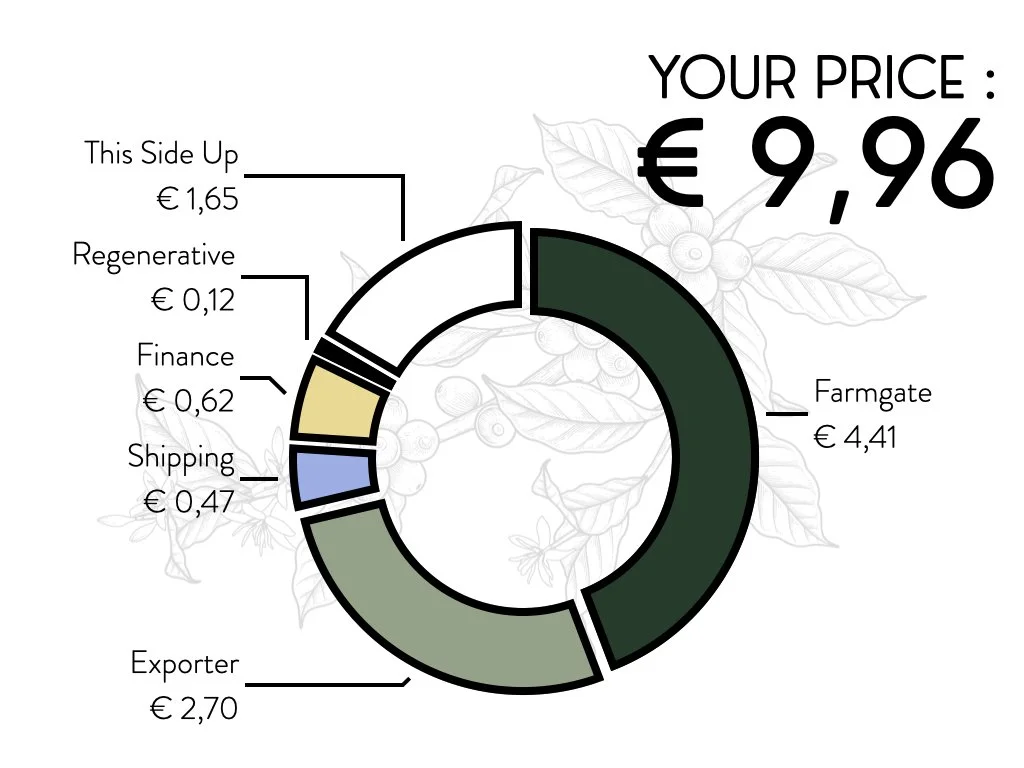COOPERATION IS THE PATH TO COMMUNAL DEVELOPMENT
Ayaka microstation came together to experience cooperation and benefit from communal development. This microstation was built in 2019 and renovated again in 2023. The vision of this group is to foster learning and development for their farmers in good agricultural practices. They aspire to be leading producers within their region. One of the major challenges faced by this group is lack of electricity. This inconsistent power supply leads to less security and theft of coffee from their warehouse. Even through these adversities, they continue being motivated to stay as a group so they can achieve their common goals. This encourages them to work together and creates an upward cycle of motivation to try again. For them coffee is cash crop and their main source of income. Other than economic reasons, they also grow coffee for their domestic consumption.
CULTIVARS
Most of the coffee grown in the Alur Highlands of north-west Uganda is SL14, a variety developed by Scott Laboratories in Kenya and promoted by the Uganda Coffee Development Authority. There is also some Bourbon, which comes from nearby DR Congo, where it dominates.
elevation
1650 meters
NOTABLE
Members of this group pay the fee to officially be part of the group as it allows them to request for loans throughout the season. All of them have a land holding between 0.5 - 1 hectare on an average.
PROCESSING
-
After harvesting, farmers take their coffee to the nearby microstation, which produces fully washed coffee. Hand sorting is done immediately to select the best quality cherries. Once the hand sorting of green, overripe, and diseased cherries is completed, the quality executives at each microstation are allowed to proceed with floating to ensure they obtain the best quality red ripe cherries.
The red ripe cherries are then taken to the pulping machine to remove the red skin and transform them into parchment. The beans are carefully placed in fermenting containers or buckets filled with water, where they undergo a fermentation process for 24 to 36 hours to remove the sticky mucilage. After fermentation, the beans are washed thoroughly with more water.
The executive team conducts a second round of hand sorting to remove beans damaged during the pulping process. The wet, high-quality beans are then transferred to a drying table, shade, or tarpaulin for proper drying until they reach the required moisture level of 12% to 13%, which qualifies them as good parchment. The hulling of parchment to obtain green beans is carried out at the ZCP factory.
-
The price you pay for Ayaka washed coffee p/kg. We agreed on this price directly with the farmers, disregarding the volatile US Coffee C price.
-
The microstation buys red cherries from the farmers. They process it and then send the dry coffee (in parchment form) to Zombo for final milling, sorting for it to be made to export grade. Farm gate in this case includes price paid to the farmer and the primary processing done by the microstation.
-
Zombo mills the coffee at Jukia hill and then sorts it to export grade. Further, they are also responsible for all the processes involved in exporting the coffee from Uganda to the Netherlands.
-
International shipping from Nebbi (Port of loading - Mombasa, Kenya) to Rotterdam, Netherlands. It is inclusive of freight, customs, insurance and warehousing costs.
-
Average financing cost owed to (mostly social) lenders. This ensures immediate payment to the farmers when the coffee leaves the farm or port.
-
A standard TSU premium on all coffees designated exclusively to accelerate farmers’ own regenerative agriculture project. Another € 0.06 is included in the final price as part of the basic income project being carried out at Zombo coffee partners in cooperation with Eight Network and This Side Up. Read more about this project here
-
This Side Up compensation for spending time and resources importing this coffee. Our work includes year-round contact with producers, managing export, shipping, import, warehousing, grading, sampling, finding and keeping roasting partners for Zombo. € 1,65 is This Side Up’s Model 1 markup. For a full overview of our modular margin construction, see the Trade Models page
Photo gallery
You may use these images freely to promote Ayaka’s coffee amongst your customers.








